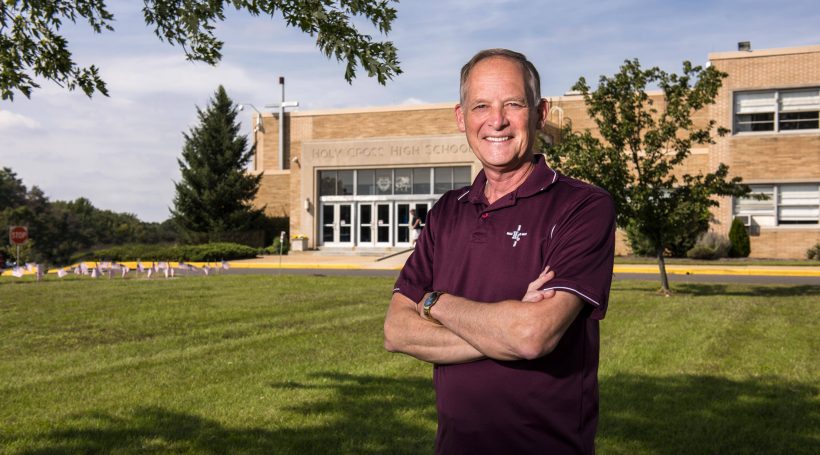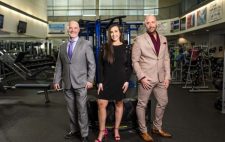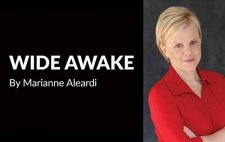Dennis Murawski’s parents wanted him to have all the things they never did.
“Neither of my parents finished high school,” Murawski says. “They were Depression-era children. My father was the middle child of 12, and he had to go to work. So he dropped out around his junior year in high school. My mother went to a secretarial-type school, but then unfortunately the Depression hit, and the best she could do was become a waitress.”
Murawski’s parents worked tirelessly to put their children through Catholic grade school, and when it came time for high school, they scraped together the $200 tuition for Delran’s Holy Cross Academy.
“The education I got from Holy Cross prepared me to go to Drexel University and become an electrical engineer,” he says.
As Burlington County’s only Catholic high school, Holy Cross had been welcoming students since 1957. But enrollment had been steadily dropping in recent years, and last December the diocese announced it was pulling the school’s funding, which would lead to an eventual closing. Murawski and a group of his fellow alumni decided they weren’t going to let that happen.
Murawski worked with Tim Durkin, then the director of community and alumni relations under the diocese, and the pair reached out to other current parents and alumni. Together they spoke to the diocese about taking Holy Cross independent.
“We told the diocese the world needs more schools like Holy Cross, not less,” Murawski says.
The group of founders worked out a 20-year lease agreement with the diocese for the property and then set about raising the money they’d need to keep Holy Cross’ doors open. The school’s previous annual budget was about $4 million, most of which was generated by tuition costs. By the time the founders – including Murawski and fellow alumni Peter Sciortino, Steve Paolini, Kathleen Jillions and Rich Suter – signed the lease in May, they’d raised $500,000; enough to cover the diocese’s pulled endowment. When the doors officially re-opened on July 1, they’d hit their target phase 1 fundraising goal of $750,000.
So what happens when a group of people who’ve never worked in education decide to take over a high school? That was the first question the founding board of the newly renamed Holy Cross Preparatory Academy had to answer.
“The biggest change is the teachers,” Durkin says. “Some retired, others chose not to come back, others just weren’t the right fit anymore. We decided we would hire the best candidate for every position in the school, and that included me.”
“You take the best candidate, regardless of their connections and experience, and give them the job. That’s the only way to do a start-up business, and at the end of the day that’s what this is,” says Durkin, who was re-hired as director of institutional advancement.
To create the curriculum, hire teachers and find qualified administrators, the founders put together an academic committee loaded with education resumes.
“We brought in this group of university presidents, former superintendents and principals,” Murawski says. “People who truly know what they’re doing when it comes to the academic aspects of this.”
The academic committee was tasked with finding a principal and overhauling the curriculum. Everything else, the board runs pretty much like a business.
“I think they found pretty quickly that while it is a business, the business of education is more unique than any business in the world,” Durkin says. “At the end of the day, you are shaping the future of young people, and you need to pour as much money and attention into that as you can.”
Tuition for students who were already enrolled stayed flat at $11,600 for the year, but the founding board lowered the rate for incoming freshman to $10,600. Enrollment did drop from about 350 in the 2017-2018 school year to 265 this year, but Durkin says that was more or less expected.
“We experienced some growing pains, and that’s just an honest fact,” he says. “But we expect enrollment to reach 500 over the next five years, which aligns with our fundraising goal of $5 million in that same time period.”
“There was a lot of hand-wringing at first, but we just had to do this, for our
parents, for ourselves and for the next generation,” he says.
“This was a very unique situation,” says Murawski. “We thought, well, we can’t guarantee it’ll work, but if we don’t do anything, we can guarantee Holy Cross will close. We were willing to try and, you know, so far, so good.”














